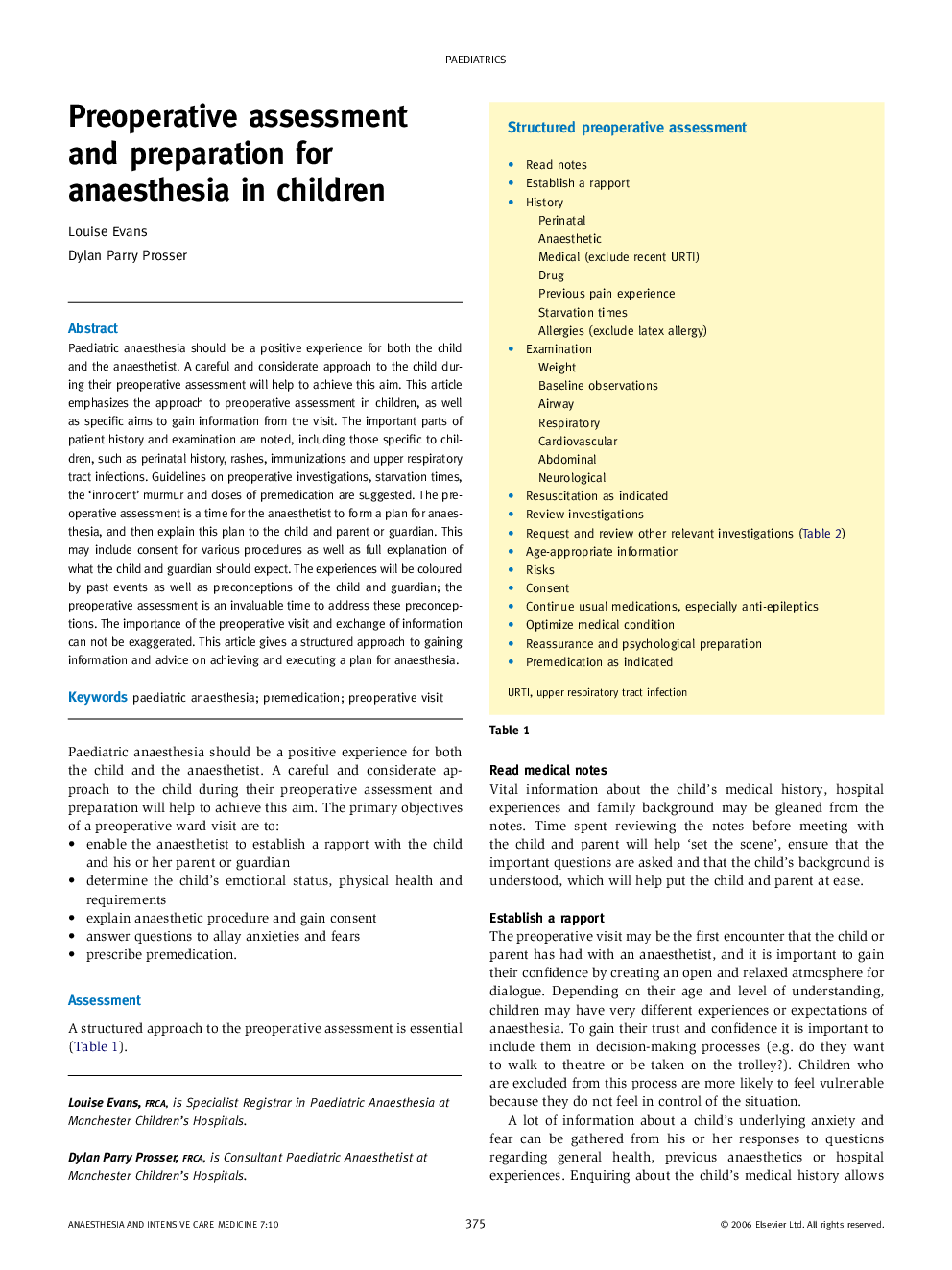| Article ID | Journal | Published Year | Pages | File Type |
|---|---|---|---|---|
| 2743201 | Anaesthesia & Intensive Care Medicine | 2006 | 5 Pages |
Paediatric anaesthesia should be a positive experience for both the child and the anaesthetist. A careful and considerate approach to the child during their preoperative assessment will help to achieve this aim. This article emphasizes the approach to preoperative assessment in children, as well as specific aims to gain information from the visit. The important parts of patient history and examination are noted, including those specific to children, such as perinatal history, rashes, immunizations and upper respiratory tract infections. Guidelines on preoperative investigations, starvation times, the ‘innocent’ murmur and doses of premedication are suggested. The preoperative assessment is a time for the anaesthetist to form a plan for anaesthesia, and then explain this plan to the child and parent or guardian. This may include consent for various procedures as well as full explanation of what the child and guardian should expect. The experiences will be coloured by past events as well as preconceptions of the child and guardian; the preoperative assessment is an invaluable time to address these preconceptions. The importance of the preoperative visit and exchange of information can not be exaggerated. This article gives a structured approach to gaining information and advice on achieving and executing a plan for anaesthesia.
